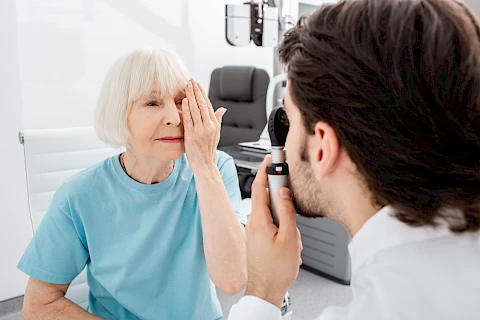
Caring for a senior with diabetes requires a focused approach to their health, especially when it comes to eye care. Diabetes can lead to various eye conditions that can worsen over time, making vigilant monitoring and intervention crucial. As a caregiver, staying proactive about managing diabetic eye health can help prevent complications and ensure seniors maintain their vision.
Breaking Down Diabetic Eye Health
Diabetes can affect many parts of the body, including the eyes. Elevated blood sugar levels can damage delicate blood vessels in the eyes, leading to a range of conditions. Common eye problems associated with diabetes include diabetic retinopathy, glaucoma, and cataracts.
Diabetic retinopathy arises from damaged blood vessels and can cause blindness if untreated. Glaucoma and cataracts can also seriously impair vision, making it crucial to address these issues proactively.
The Importance of Regular Eye Exams
Regular eye exams play a vital role in recognizing and managing eye problems early. These exams help detect any changes in vision that might otherwise go unnoticed until they become serious.
For seniors with diabetes, it is recommended to have a comprehensive eye exam at least once a year. Staying on top of these appointments ensures early detection and treatment, preserving eye health and preventing potential complications.
Managing Blood Sugar Levels
Managing blood sugar levels is closely linked to maintaining good eye health. Consistent, well-controlled blood sugar can slow the onset or progression of diabetic eye conditions.
Caregivers can aid seniors by monitoring their diet, ensuring they take their medications as prescribed, and encouraging regular physical activity. Keeping blood sugar levels steady is not only beneficial for eye health but important for overall well-being too.
Recognizing Signs of Vision Changes
Common signs include blurry vision, seeing spots or floaters, difficulty seeing at night, and loss of peripheral vision. Caregivers should monitor these symptoms and document any changes. Keeping a detailed record of these signs will be invaluable during medical consultations and can guide healthcare providers in treatment.
Assisting With Eye Care Routines
Helping seniors maintain their eye care routines is key to protecting their vision. Caregivers can assist by ensuring that seniors take their eye medications regularly, which may include eye drops and pills.
Organizing medications in a clear and accessible manner can prevent missed doses. Additionally, incorporating eye exercises or protective measures, like wearing sunglasses, can enhance eye care routines.
Supporting Seniors During Eye Care Appointments
Accompanying seniors to their eye care appointments provides them with both emotional and logistical support. Before visits, prepare a list of symptoms and questions to discuss with the eye doctor. Being present during appointments allows caregivers to understand the treatment plan and instructions. This support can reduce stress for seniors, making the experience more comfortable and productive.
Looking for Professional Senior Care and Support?
Proactive eye care is essential to preventing complications for seniors with diabetes. Regular eye exams, blood sugar management, and early detection of vision changes are all key to maintaining eye health. For caregivers seeking support, contact Senior Helpers Naperville. We provide personalized care services in Naperville, Aurora, Oak Park, Cook County, and Willowbrook, helping seniors live with greater independence and comfort